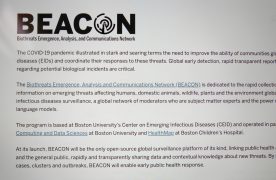Campus tours. Information sessions. Interviews. The Princeton Review guide to colleges. As much as baseball and apple pie are integral parts of American life, all four have become necessary parts of the high school students’ typical college search. But there may be a bad apple in the bunch.
The Princeton Review’s rankings, released in late August, rank the country’s top 20 colleges and universities on all facets of college life, ranging from minority acceptance to overall student happiness. According to the rankings, Boston University students enjoy the top housing facilities in the country, rank second in diversity and acceptance of gay students, and are eighth happiest with their overall college experience, among others.
While the Princeton Review is trying to provide inexperienced high school students and their parents a basis for judging a school’s intangibles, it instead confuses college searchers by putting its well-respected name on meaningless rankings.
The categories are worded with a lack of seriousness, and their research methods are less than scientific. According to the Princeton Review’s website, the rankings are based on an average of 300 surveys per school, compiled over three academic years in both paper form, distributed on campuses, and electronic form, voluntarily completed on the Princeton Review’s website.
How inaccurate is the whole project? Just look at BU’s rankings. The creatively named “dorms like palaces” category, in which BU scores highest? The more than 1,500 students who live in both Warren Towers and West Campus would surely disagree. And it seems difficult to believe that 300 surveys could define a student body’s spiritual connection, as the survey tries to do with its “students ignore God on a regular basis” category. BU ranks 17th.
BU administrators’ dismissive approach to school rankings is sensible in this case. The Princeton Review’s rankings cannot possibly provide an accurate gauge of a typical student’s life at a given campus. Only first-hand recommendations from students and personal campus visits can give a prospective student a fair picture of a college’s merit.
The Princeton Review is well-respected by high school students as a source for judging all parts of college life at the most noteworthy colleges in the United States. Its reputation and central place in the college search make the Princeton Review’s recent release of rankings for college life all the more disturbing.
This is an account occasionally used by the Daily Free Press editors to post archived posts from previous iterations of the site or otherwise for special circumstance publications. See authorship info on the byline at the top of the page.












